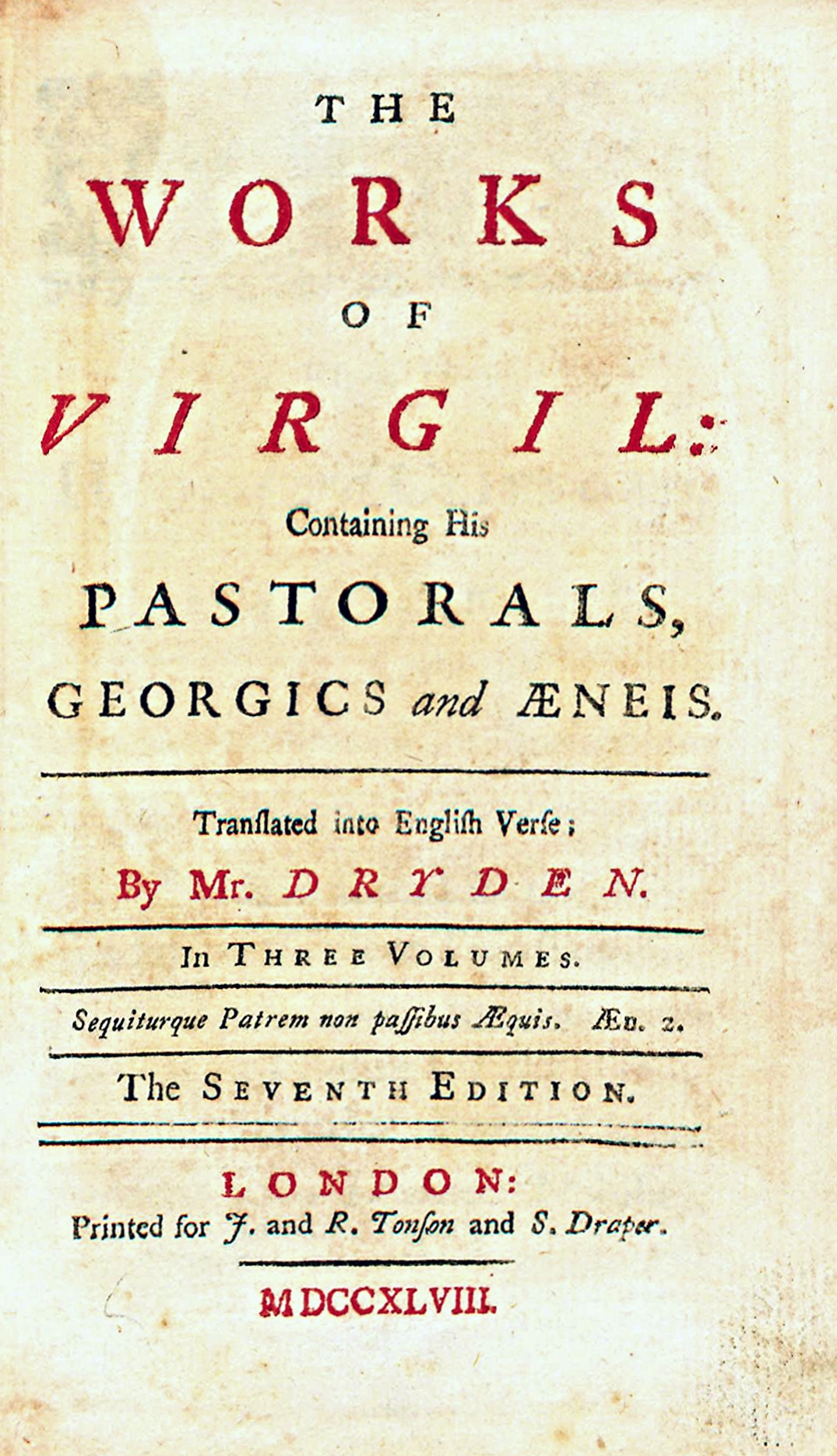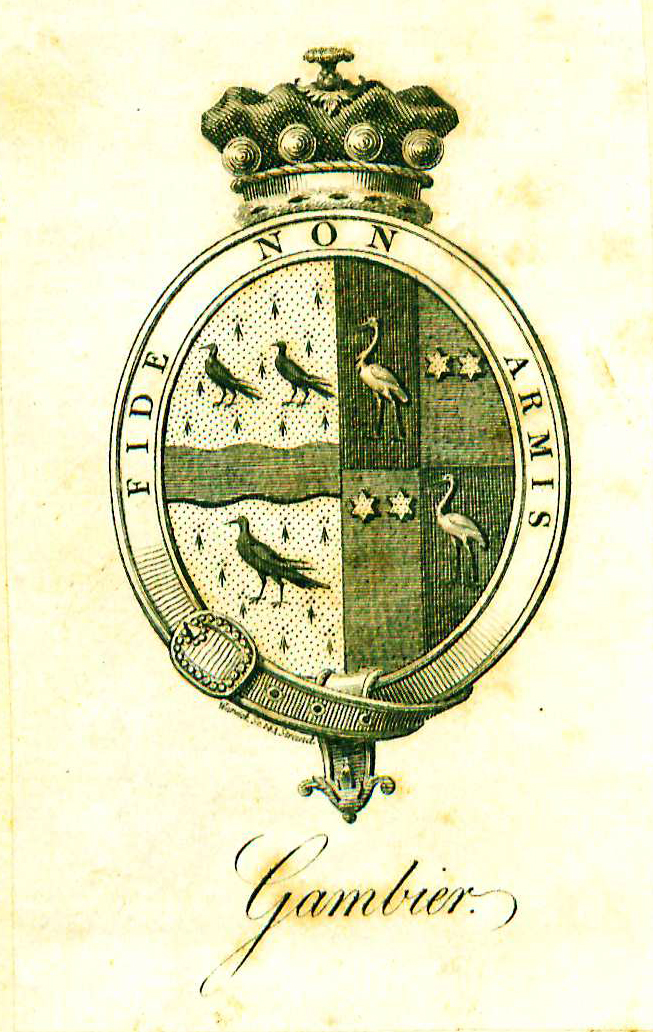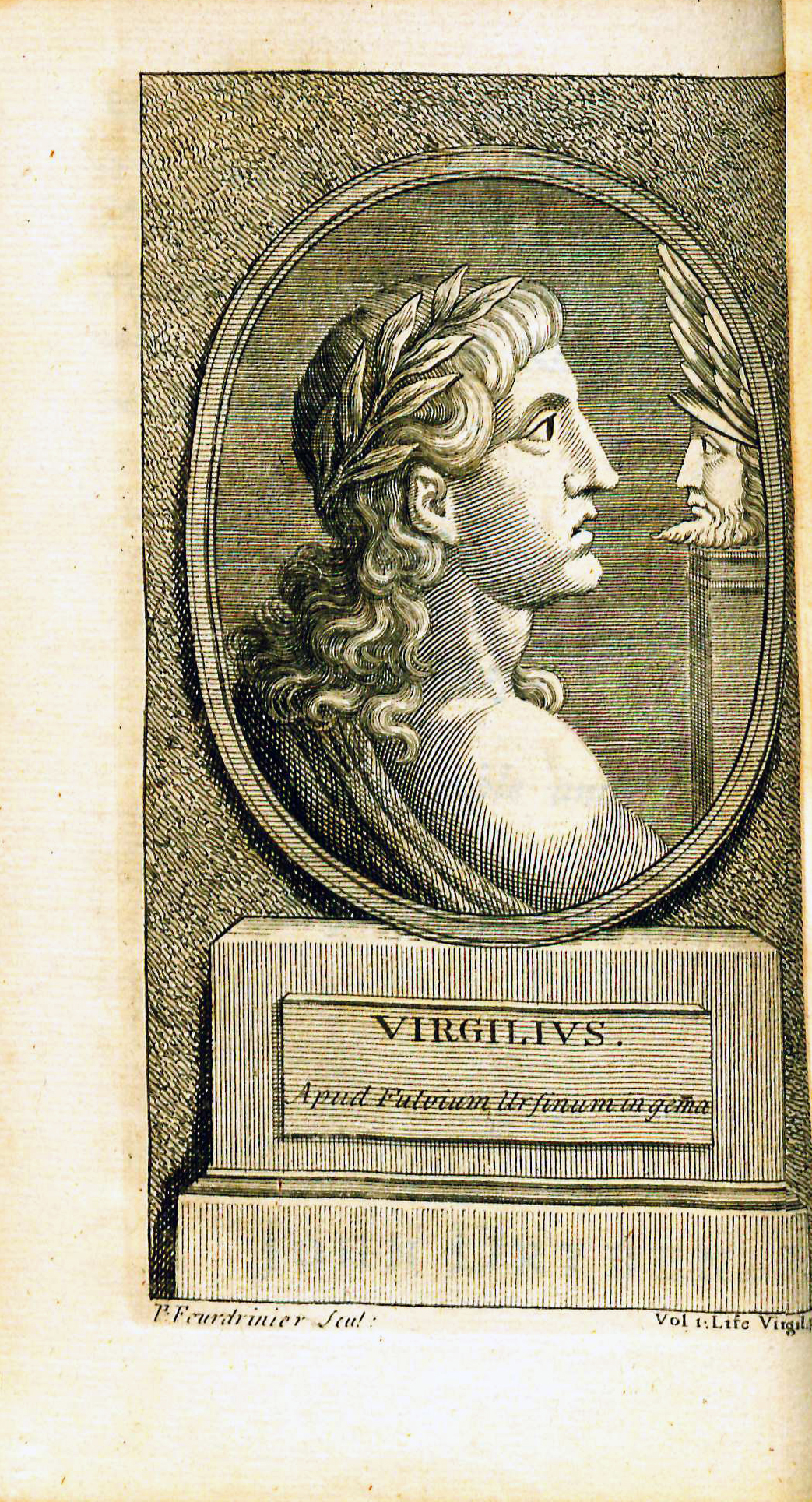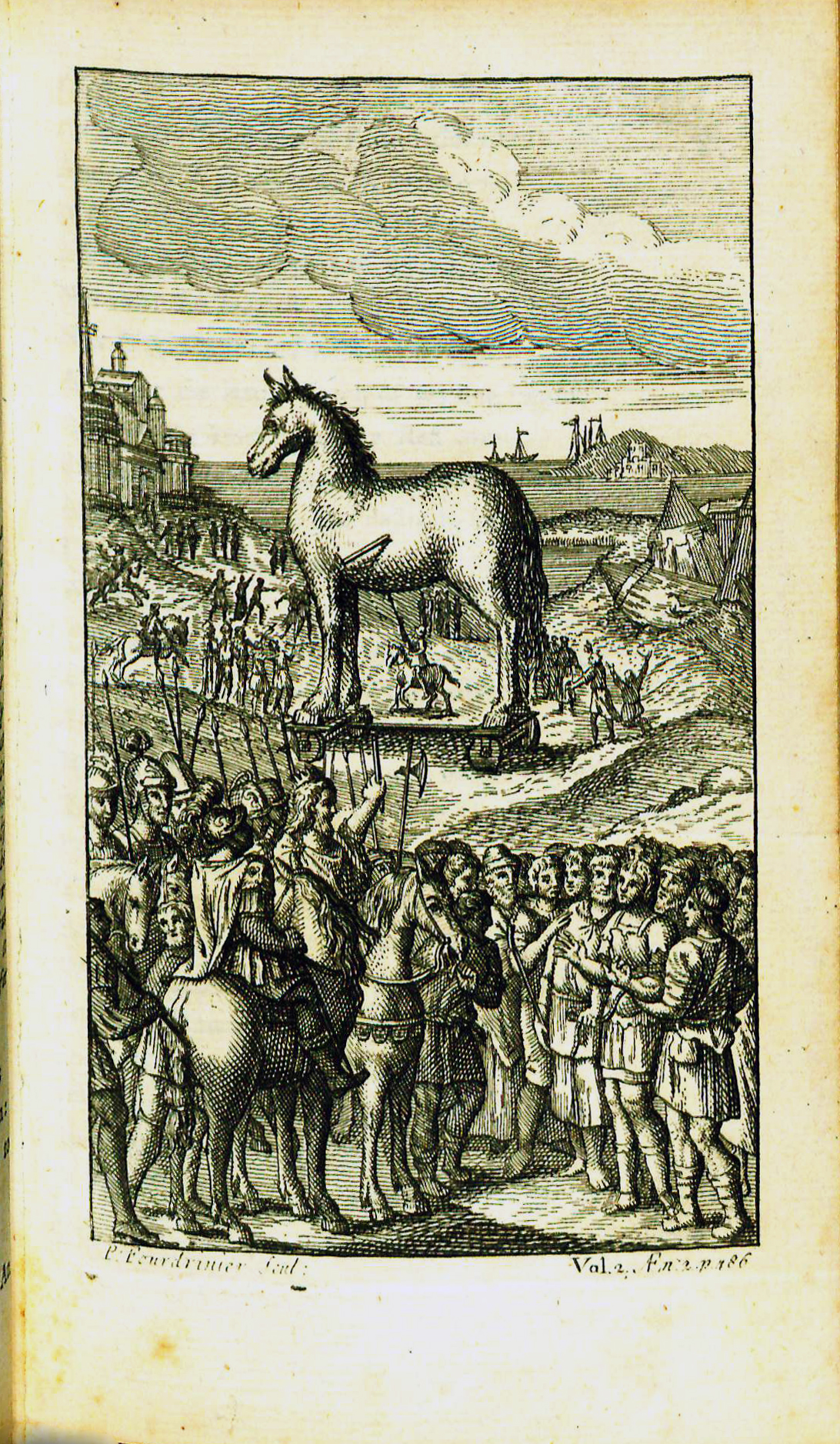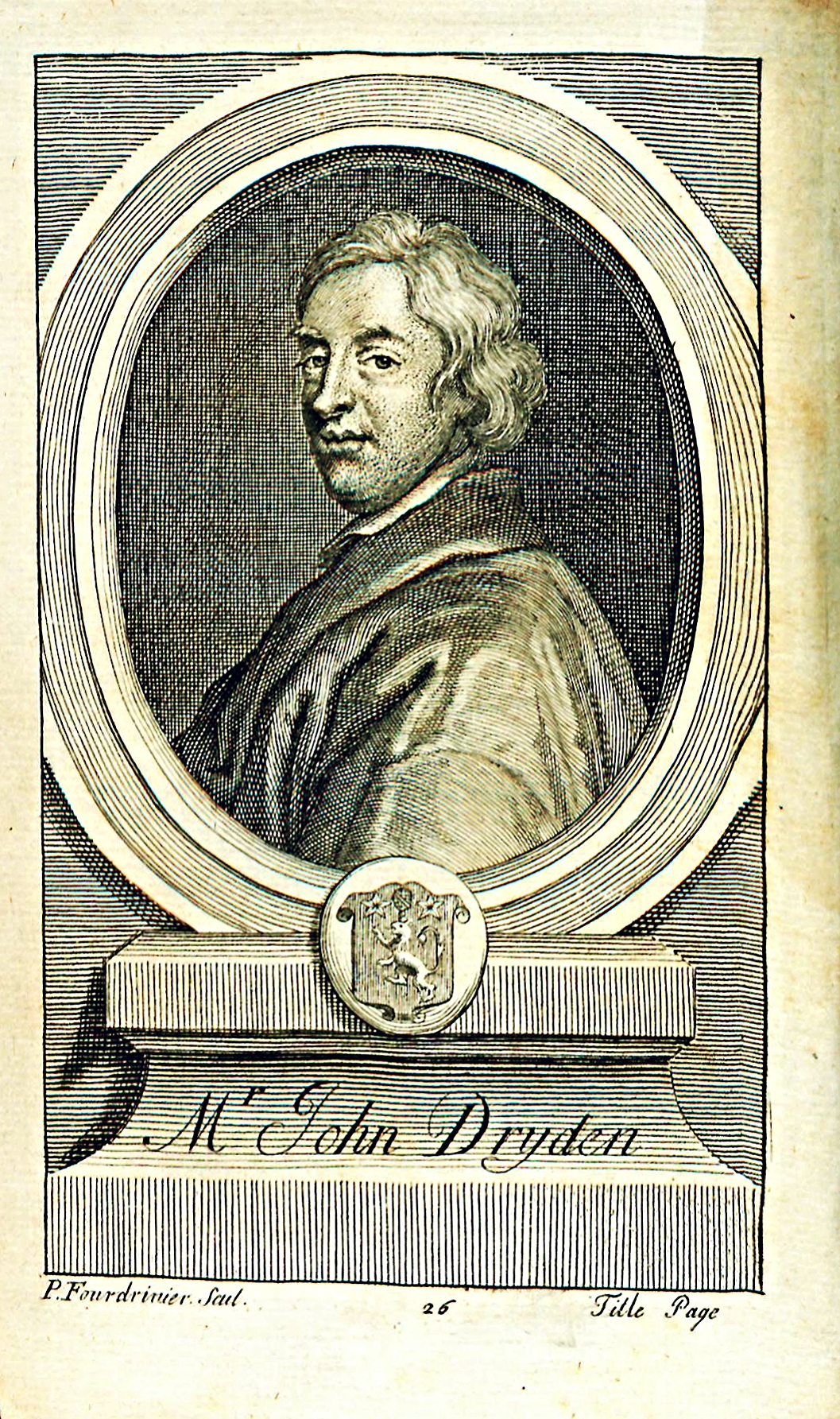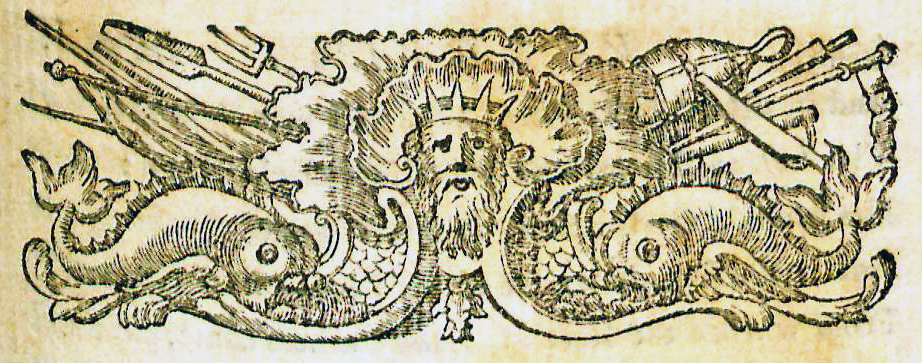The Works of Virgil, Containing His Pastorals, Georgics and Æneis
by Virgil
| The Works of Virgil | |
|
Title page from The Works of Virgil, volume one, George Wythe Collection, Wolf Law Library, College of William & Mary. | |
| Author | Virgil |
| Translator | John Dryden |
| Published | London: Printed by J. and R. Tonson and S. Draper |
| Date | 1748 |
| Edition | Seventh |
| Language | English |
| Volumes | 3 volume set |
| Desc. | 12mo (17 cm.) |
| Location | Shelf L-2 |
Publius Vergilius Maro (70 – 19 BCE) was a Roman poet born in Cisalpine, Gaul, on the side of the Alps closest to Rome. His family was well-off, enabling his studies at Cremona and Milan, as well as Rome and Naples, the latter under the Epicurean philosopher Siro.[1] When land was confiscated following the battle of Phillippi in 42 BCE for the army veterans of Antony and Octavian, Virgil's family lost land. They were likely compensated, however, with property near Naples.[2] Virgil's Eclogues, his first collection of poems, were likely written around that time, perhaps as late as 38 BCE, as the confiscations were a central topic of two of the poems.[3] At some later point, Virgil became part of the poetic circle around Maecenas, putting him in close contact with Octavian, the future emperor Augustus.
Virgil published his Georgics in 29 BCE. Throughout the 20s BCE, both of Virgil's books of poetry were widely read and distributed.[4] His poems illustrate the greatness of the Roman Empire through "the technical perfection of his verse" and imagery.[5]
This volume contains the three most important of Virgil's works: the Pastorals ("Bucolics" or "Eclogues"), the Georgics, and the Aeneid. The Pastorals muse on the idyllic life of shepherds in northern Italy.[6] The Georgics are, similarly, meditations on the nature of agriculture. The name “Georgics” refers to the Greek phrase for "working the land" and the word for "farmer."[7] Where Virgil's pastoral poems were largely imitative, the focus and depth of his Georgics were unprecedented.[8] The Aeneid is Virgil's great epic, following the tradition of Homer.[9] The work follows the story of Aeneis, who leaves behind his conquered homeland of Troy and goes on to found the culture that will eventually become Rome. Virgil himself captured the scope of these three works with the inscription on his tombstone, “cecini pascua rura duces” (I sang of farms, fields, and heroes).[10]
John Dryden's translation of the Georgics led to a surge in its popularity among English speakers in the eighteenth century, inspiring many romantic ideas about rural life and agriculture.[11]
Evidence for Inclusion in Wythe's Library
Thomas Jefferson listed "Dryden's Virgil. 3.v. 12mo." in his inventory of Wythe's Library in the section of titles he kept for himself. Brown's Bibliography[12] includes the 1748 edition published in London based on the copy Jefferson sold to the Library of Congress.[13] This volume does not survive. George Wythe's Library[14] on LibraryThing indicates "Precise edition unknown. Several three-volume editions were published at London, the first in 1721." The Wolf Law Library followed Brown's suggestion and purchased a copy of the 1748 edition.
Description of the Wolf Law Library's copy
Bound in full gilt-ruled calfskin with gilt-ruled spine compartments, elaborate gilt-tooled motifs, and gilt-tooled raised bands with morocco labels. Each volume includes the armorial bookplate of "Gambier with the Latin motto "Fide non armis" (By faith, not arms). Purchased from Heldfond Book Gallery, Ltd.
Images of the library's copy of this book are available on Flickr. View the record for this book in William & Mary's online catalog. See the table of contents for a complete list of the works included in this set.
See also
- George Wythe Room
- Jefferson Inventory
- P. Virgilii Maronis Bucolica, Georgica, et Aeneis
- P. Virgilii Maronis Bucolica P. Rami Eloquentiae & Philosophiae
- P. Virgilii Maronis Opera
- Publii Virgilii Maronis Bucolica, Georgica, et Aeneis
- Wythe's Library
References
- ↑ "Virgil” in The Oxford Companion to Classical Literature, ed. by M.C. Howatson (Oxford: Oxford University Press, 2011).
- ↑ Ibid.
- ↑ "Virgil" in Oxford Dictionary of the Classical World, ed. by John Roberts (Oxford: Oxford University Press, 2007)
- ↑ Ibid.
- ↑ "Virgil" in The Oxford Companion to Classical Literature.
- ↑ Virgil, Georgics, trans. Peter Fallon, (Oxford: Oxford University Press, 2009), xiv.
- ↑ Ibid.
- ↑ Ibid., xiii.
- ↑ Virgil, Aeneid, ed. Clyde Pharr, (Wauconda, IL: Bolchazy-Carducci, 2007), 1–4.
- ↑ Ibid.
- ↑ L. P. Wilkinson, The Georgics of Virgil: A Critical Survey, (Cambridge: Cambridge University Press, 2010), 299–304.
- ↑ Bennie Brown, "The Library of George Wythe of Williamsburg and Richmond," (unpublished manuscript, May, 2012) Microsoft Word file. Earlier edition available at: https://digitalarchive.wm.edu/handle/10288/13433
- ↑ E. Millicent Sowerby, Catalogue of the Library of Thomas Jefferson,(Washington, D.C.: The Library of Congress, 1952-1959), 4:421-422 [no.4282].
- ↑ LibraryThing, s. v. "Member: George Wythe," accessed on June 28, 2013, http://www.librarything.com/profile/GeorgeWythe
